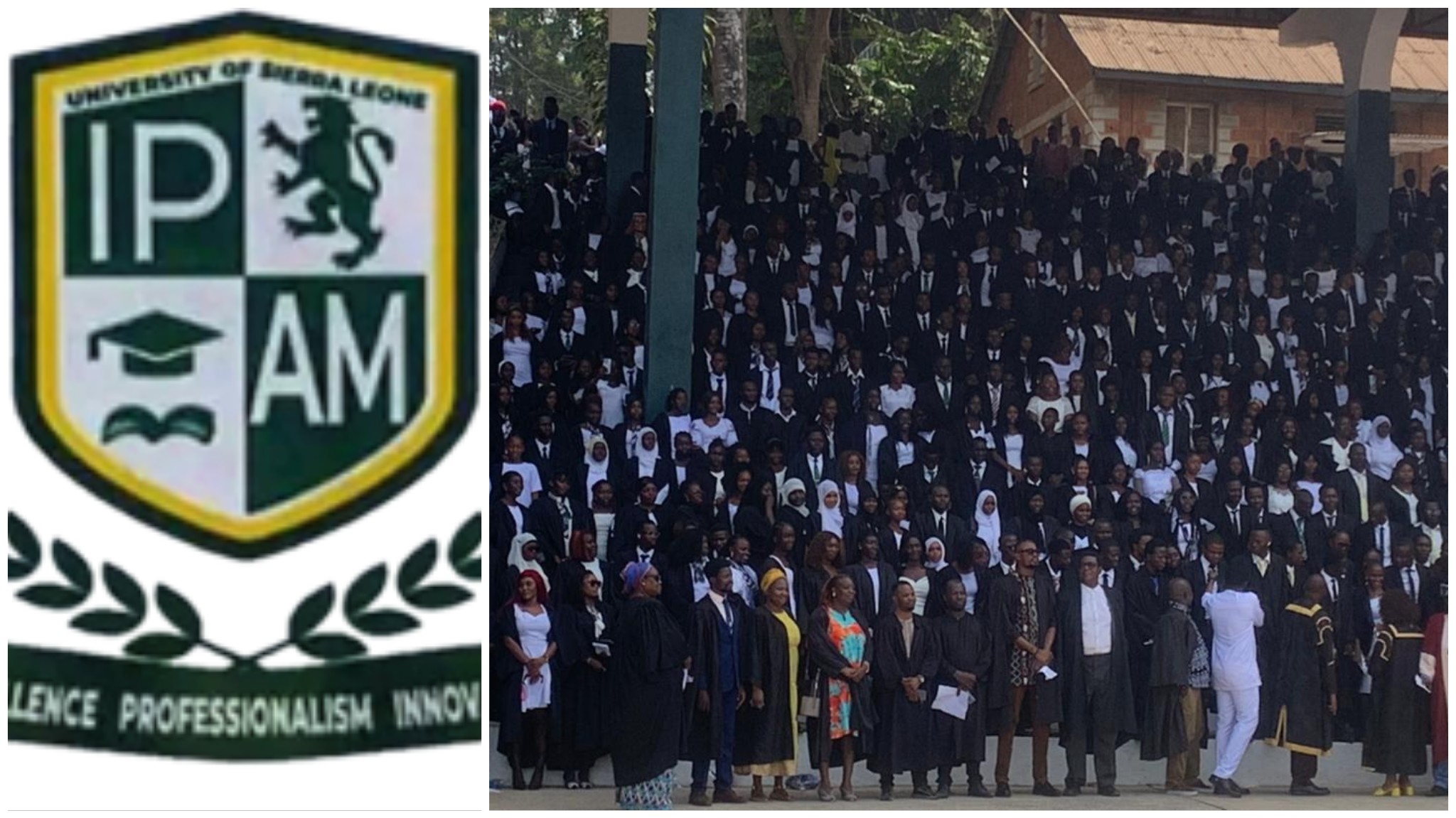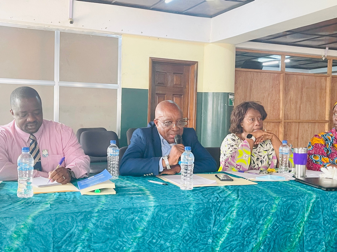
The leading citadel of learning in Sierra Leone, Institute of Public Administration and Management (IPAM) continues to be the trailblazer with its strategic and innovative interventions in order to ensure it matches international standards.
Under the phenomenal leadership of Prof. Edmond Nonie, the institution last Wednesday 26 January 2022 at its campus at Tower Hill in Freetown held a seminar for tutors during which deliberations over introduction of new courses and expanding and improving on current courses were discussed in detail.
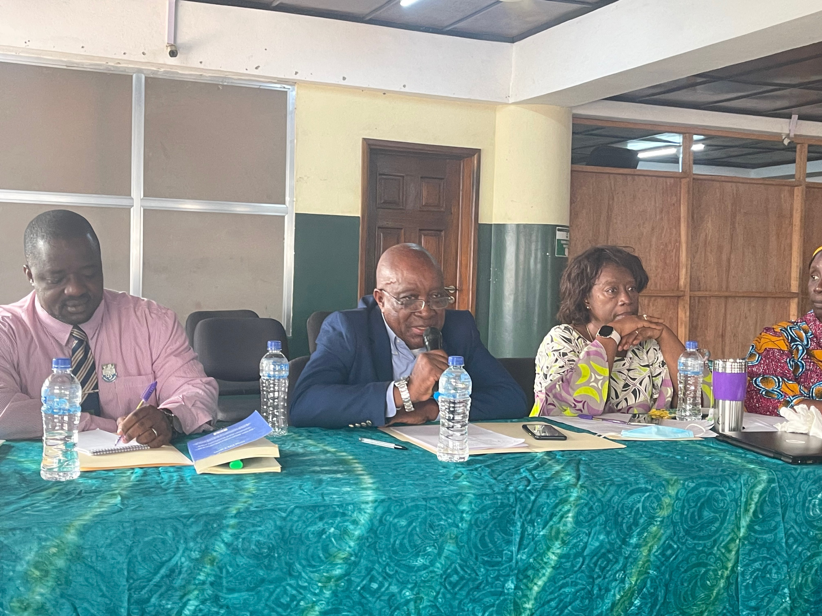
The seminar is the result of a meeting held on 6th May, 2021 wherein the IPAM Management Committee discussed ‘Basic ICT Course for New Undergraduate Applicants’ and the participants resolved on establishing a full fledge Department of Foundation Studies, under which foundation subjects/skills like Basic ICT, Critical Thinking, Mathematics, Communication/Writing Skills, and Academic Success Skills would be run, catering mainly for Year 1 students.
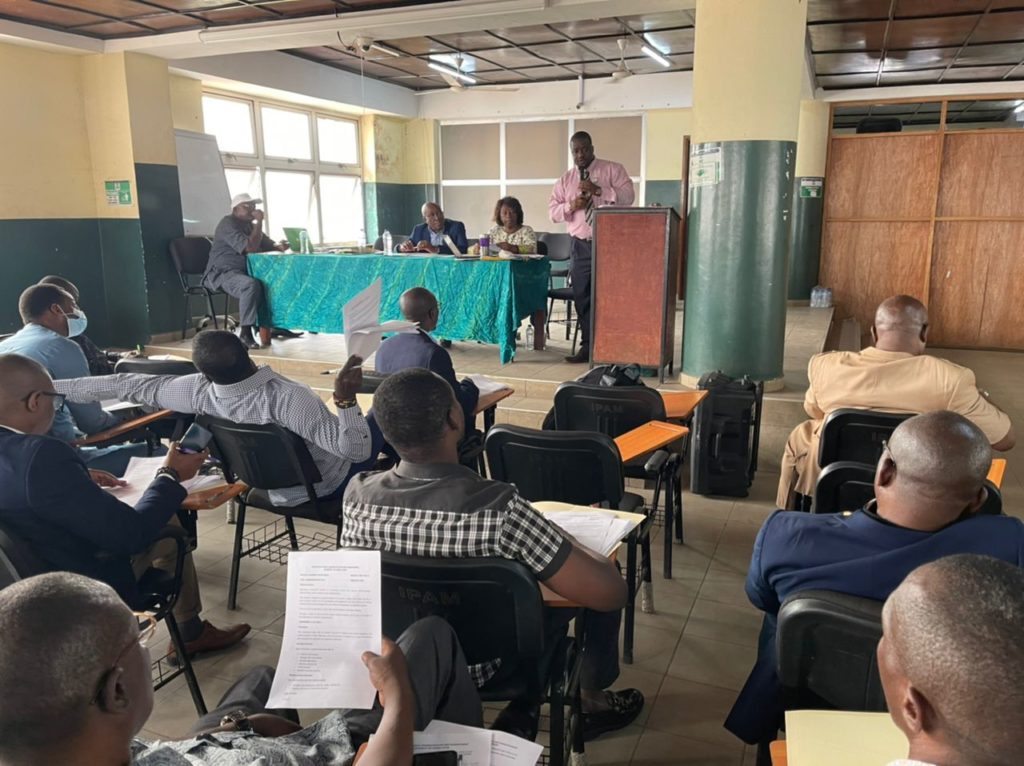
Prof. Nonie called on lecturers to make good use of this exercise as it is key to students’ development and enhancement, adding that students are key to national development and it is exactly to achieve this objective is the reason why IPAM is establishing this new unit.
Establishing an exclusive unit for the running of Foundation Studies would create room for the incorporation of other much-needed foundational skills such as Critical Thinking/Principles of Reasoning and Basic Foreign Language for Business; which are critical in today’s world of work, he noted.
Speaking on the rationale for the establishment of this new unit, Senior Lecturer, Mrs. Michaela Denison-George informed her colleagues that whilst English Language/Communication Skills, Mathematics and Introduction to ICT are taught across all degree programs at Year 1, apart from ICT, the other subjects (English Language/Communication Skills and Mathematics) do not properly reside within a specific department. She went on to state that “this is the case because as a business/administration institute at its inception, these programs where not mainstreamed, but embedded within other established management departments.” She noted further that this practice has persisted over the years but that with the increased number of students serviced by these ‘isolated’ or ‘embedded’ units, there has been a felt need to establish a freestanding department to coordinate the running of these courses; especially as they are now regarded as extremely necessary for success not only in College but in life generally.
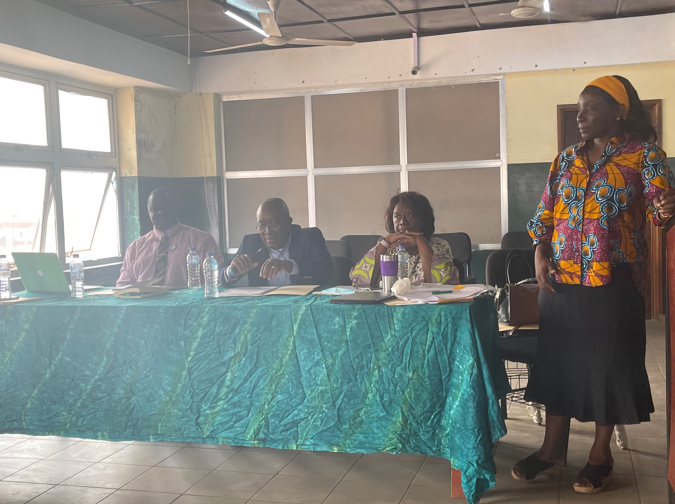
The topics under this new department would include Introduction to Communication and the Need for Effective Communication; Written Communication; Reading as a Communication Skill; Writing in the Workplace; Oral Communication among others.
The Deputy Registrar, Brima Bah spoke about Academic Success Skills wherein he stated that becoming a successful student is a continuous process that requires self-knowledge, determination and the ability to work collaboratively.
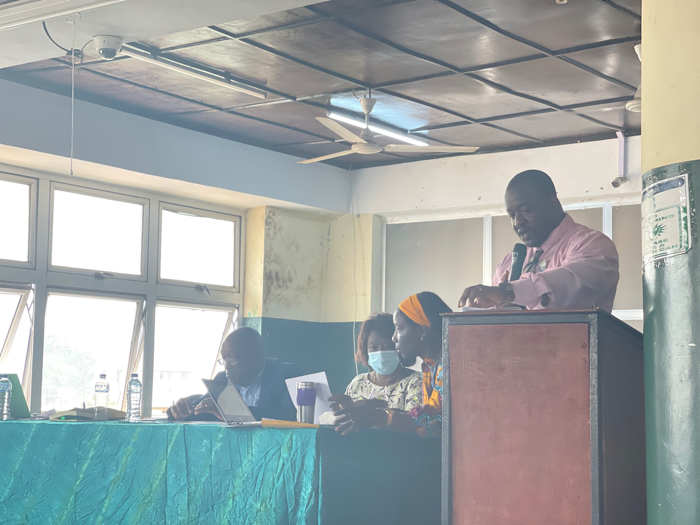
He said this module is designed to prepare students for success in college, their career and life and it aims to equip students for full participation and engagement with their studies by building awareness and understanding of the core values and expectations of academic culture.
He noted that it has two main components: (1) Life Skills and (2) Media & Information Literacy.
He maintained that through a variety of well-structured lecture sessions, students will be set on the path of increased level of academic preparedness, adding that this component deals with the abilities required for adaptive and positive behavior that enables students to deal effectively with the demands of college life. “It is also foundational skills necessary for transition to productive adulthood,” he noted.
In her submission, Assistant Deputy Vice Chancellor, Associate Prof. Conteh-Morgan noted that media and information literacy is very important in today’s society and that is why this module will introduce students to methods and ethics of searching for, using and producing information, emphasizing analyzing and defining information needs and resources, effective searching for information, evaluating resources and synthesizing information. She added that it will help students to be creative thinkers as well as responsible and competent users and producers of media information.
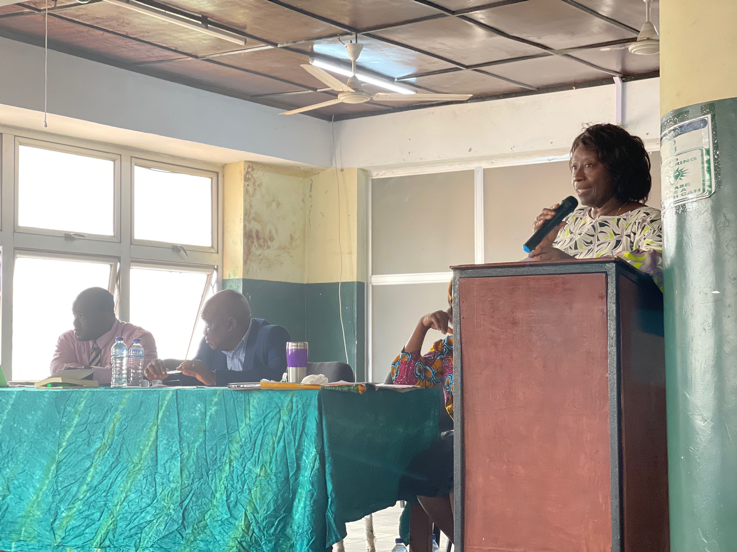
Other heads of departments including Information and Communication Technology, Statistics and Mathematics among others made very good presentations.



